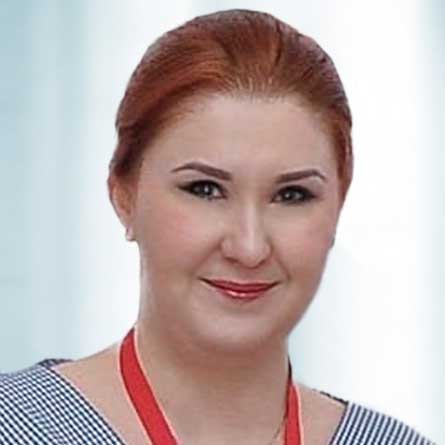Area of study : 13.03.02 Electric power engineering and electric equipment
Major: Electric power engineering
Duration: 4 years
Start: September 1
Admission: open
Language : Russian
The major "Electric Power Engineering" is the primary one for training specialists for the electric energy sector. Students receive initial training studying the processes that occur in all aspects of the electric power system, from energy generation to energy consumption facilities. Considerable attention is given to the study of new production techniques and technologies, electricity transmission and distribution, issues relating to providing consumers with high-quality electric energy, improving energy efficiency and supply reliability using modern technical means, information technologies, and control and forecasting methods.
During their studies, students will learn how to work with special programs such as RastrWin, EUROSTAG, automated calculation of relay protection and automation settings, the automated workplace of a relay protection and automation specialist, Model Studio CS, EnergyCS, and many others. Students participate in industrial, national, and international research and technical conferences and publish their work in the leading research and practical journals and conference proceedings.
Students’ internships take place in energy enterprises dealing with energy generation, power supply, equipment installation and commissioning, operational dispatch, sales, and design. The research for the thesis is commissioned by the leading energy firms to solve their practical issues.
Graduates majoring in electric power engineering are in demand in generating, power-supply, energy repair, energy sales, and design and engineering enterprises, as well as in large organizations with energy infrastructure that have specialized units responsible for its efficient operation.
- Application of artificial intelligence methods in energy facility management
- Artificial intelligence systems in energy problems
- Electrical and electronic devices
- Electrical equipment for renewable energy installations
- Electrical equipment of power plants
- Electrical systems and networks
- Electromagnetic compatibility in the power industry
- Electrotechnical and structural materials science
- Energy savings and energy audits at industrial enterprises
- Energy savings and energy efficiency in the electricity
- Fundamentals of electrophysics in the electric field
- Fundamentals of project activity
- High voltage technology
- History of electrical engineering
- Hydraulic power industry
- Industrial electronics
- Information and measuring equipment
- Information technology and programming basics
- Mathematical issues of electricity
- Micro- and small hydroelectric power plants in autonomous power supply systems
- Modeling in the electric power industry
- Modes of electrical equipment at power stations
- Orientation course
- Physical and mathematical foundations of electricity
- Power supply systems
- Project activities
- Relay-type protection and automation
- Renewable energy sources
- Software tools for professional activity
- The electrical part of power stations and substations
- Theory of Probability and Mathematical Statistics
- Transient phenomena in electric power systems
- Vadim Manusov
- Anastasia Rusina
- Alexander Ovsyannikov
- Dmitry Pavlyuchenko
- Svetlana Rodygina
- Analysis of measures to reduce energy losses in distribution networks
- Analysis of ways to reconstruct the power supply system for consumers in hard-to-reach settlements of Yakutskenergo
- Analysis of the operating modes of the radial section of the 110-kW electrical network to select the settings for the microprocessor protection of lines
- Analysis of the static stability of the power system
- Analysis of the efficiency of the energy storage to improve the quality of electricity
- Choice of operation parameters for the complex of backup protections for the C6 line from the side of NTEC-4
- Choice of operation parameters for relay protection of a 110 KW network section with a two-sided power supply using an automated complex for calculating settings
- Study of energy storage control algorithms to improve the reliability of wind farms
- Research and analysis of the power supply system of a residential area
- Study of the efficiency of transferring transformer points to consumers in distribution networks
- Study of the effectiveness of the use of energy storage for voltage control in the power system
- Assessment of the feasibility of using non-traditional energy sources for generating electricity
- Improving the quality of electricity with the non-linear nature of the load
- Increasing power transmission throughput capacity at Sayano-Shushenskaya Dam - Novokuznetsk
- Forecasting the residual life of transformers based on monitoring data
- Development of a load model for an electrodynamic model
- Development of a model for predicting electricity consumption using artificial intelligence
- Development of a model of the daily load schedule for calculating the normal mode on the example of the Pamir power system
- Creating an excitation controller for an electrodynamic synchronous machine
- Development of a system for oscillography of regime parameters of an electrodynamic system
- Development of a method for determining damage locations using neural networks
- Development of technical solutions for backup protection of lines with two-way power supply from all types of short circuits
- Development of a physical model of an overhead power line with a voltage of 10 kw to study the process of a single-phase earth fault
- Development of digital protection against increasing the frequency of the generator of the educational power plant
- Stabilization of frequency in the power system during load fluctuations
- Admission starts on June 20
- Admission stops on July 10
- The documents are sent to the university in electronic form through the NSTU Enrolee Personal Account. When submitting an application for admission in electronic form, the documents attached to it are submitted (sent) to the NSTU admission committee in the form of their electronic images (paper documents converted into electronic form by scanning or photographing with the provision of machine-readable recognition of its details)


